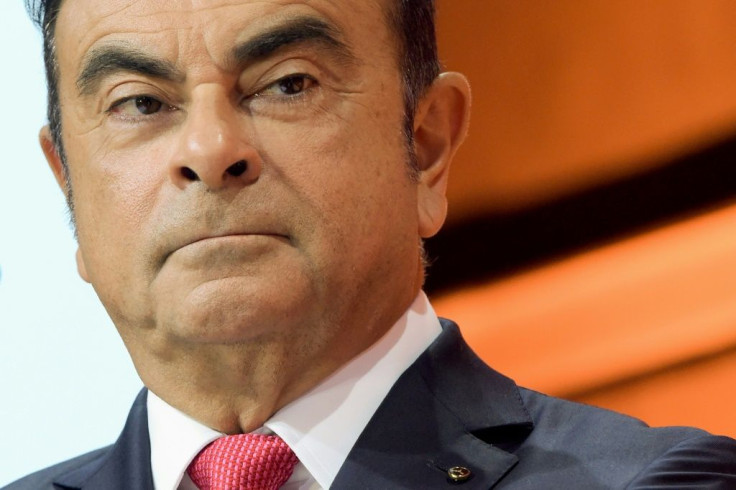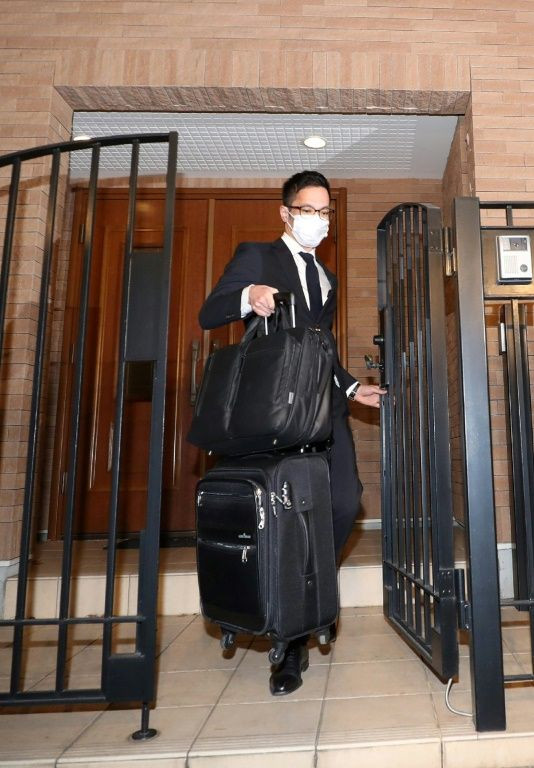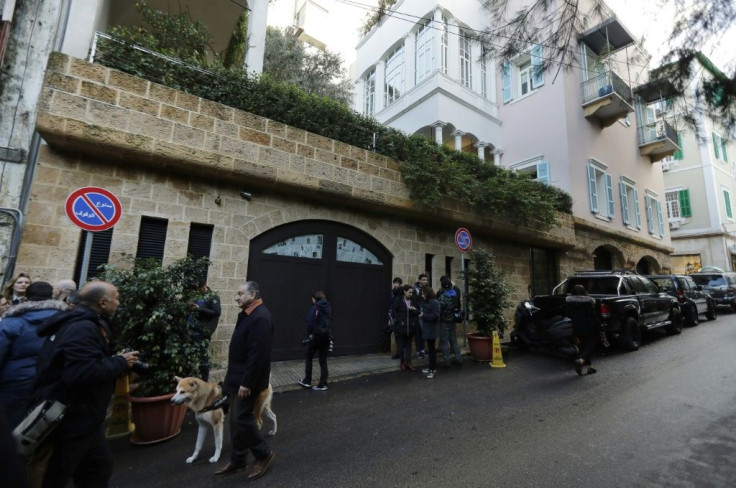'I Did It Alone', Ghosn Says Of Japan Escape

Carlos Ghosn claimed Thursday he organised his dramatic escape from bail in Japan alone as the disgraced auto tycoon enjoyed his first days of freedom in Beirut despite an Interpol arrest notice.
The exact circumstances of the former Renault-Nissan boss's escape from a case he said was "rigged" were unclear but media reports described a plot that had all the trappings of a spy novel.
Turkey said seven people had been detained for questioning, including four pilots, over how the wanted tycoon was able to transit through Istanbul.
Ghosn, who had been under house arrest in Tokyo since April, was believed to be holed up his central Beirut residence, where visitors filed in and out under the scrutiny of TV cameras.
His surprise return to Lebanon just before New Year's Eve raised fresh questions over his judicial status and marked the latest twist in a saga that has rocked the automotive and business world for more than a year.
Lebanon's state news agency quoted Justice Minister Albert Sarhan as announcing that "the public prosecutor... has received what is known as a red notice from Interpol in the Carlos Ghosn case".
An Interpol red notice is a request for a provisional arrest, pending extradition or prosecution, but it is not a warrant.

A Lebanese judicial source has already told AFP however that Lebanon and Japan do not have an extradition agreement under which Ghosn -- who holds Lebanese, French and Brazilian nationalities -- could be sent back to Tokyo.
Ghosn stands accused in Japan of deferring part of his salary until after his retirement and concealing this from shareholders, as well as syphoning off millions in Nissan cash for his own purposes.
His escape caused deep embarrassment in Japan, where prosecutors launched an investigation into the security lapse and on Thursday searched his residence.
Japanese authorities are expected to analyse security camera footage from his residence and other places they suspect Ghosn travelled to before he fled, Japanese broadcaster NHK said.

According to Japan's Kyodo news agency, Ghosn was smuggled out with the help of two private security operatives who pretended to be part of a music band for a Christmas party at his residence.
Quoting a Lebanese consultant in Tokyo, Kyodo said Ghosn hid in an instrument case before boarding a private jet -- a scenario a member of Ghosn's entourage has previously denied.
One of the operatives was a former Marine employed by a US security firm while the second worked for a Lebanese firm, Kyodo said.
More details could emerge when the former tycoon, who was first arrested in November 2018, speaks to the press in Beirut next week.

Ghosn denied through the Paris-based agency handling his PR that his family had anything to do with his escape.
"The media reports saying my wife Carole and other family members played a role in my departure from Japan are falsehoods. I alone organised my departure," he said.
Meanwhile Turkey also announced that it was holding seven individuals in connection with Ghosn's extraordinary escape.
The investigation is focused on two flights.
The first, a Bombardier labelled TC-TSR, flew from Osaka in Japan, landed in Istanbul at 5:15 am and parked in a hangar.
The second was a private jet to Beirut, a Bombardier Challenger 300 TC-RZA, which left 45 minutes later, according to the Turkish news agency DHA.
Ghosn was able to enter Lebanon on a French passport, according to airport documents seen by AFP.
NHK reported that the court in Tokyo had allowed Ghosn to keep a second French passport so long as it was kept "in a locked case" with the key held by his lawyers.
Although Ghosn was restricted to his lush Beirut home only by the media's glare, not all in Lebanon welcomed his return.
Three lawyers submitted a report to the public prosecutor demanding that the businessman be prosecuted over a trip he made to Israel in 2008.
"Doing business with Israel is not a matter of opinion -- any normalisation is forbidden by law," Hassan Bazzi, one of the lawyers, told AFP.
Lebanon is technically still at war with Israel, which occupied the south of the country until 2000, and forbids its citizens from travelling there.
Ghosn had travelled to Israel and met then president Shimon Peres as part of a trip to support a partnership with an Israeli entrepreneur launching an electric car venture.
Some Lebanese see Ghosn as a symbol of their country's fabled entrepreneurial genius and a proud representative of its vast diaspora.
The mood has changed since his November 2018 arrest, however, and, weeks into an unprecedented wave of protests against corruption and nepotism, activists saw his return as another manifestation of privilege and impunity for the super-rich.
© Copyright AFP 2024. All rights reserved.




















